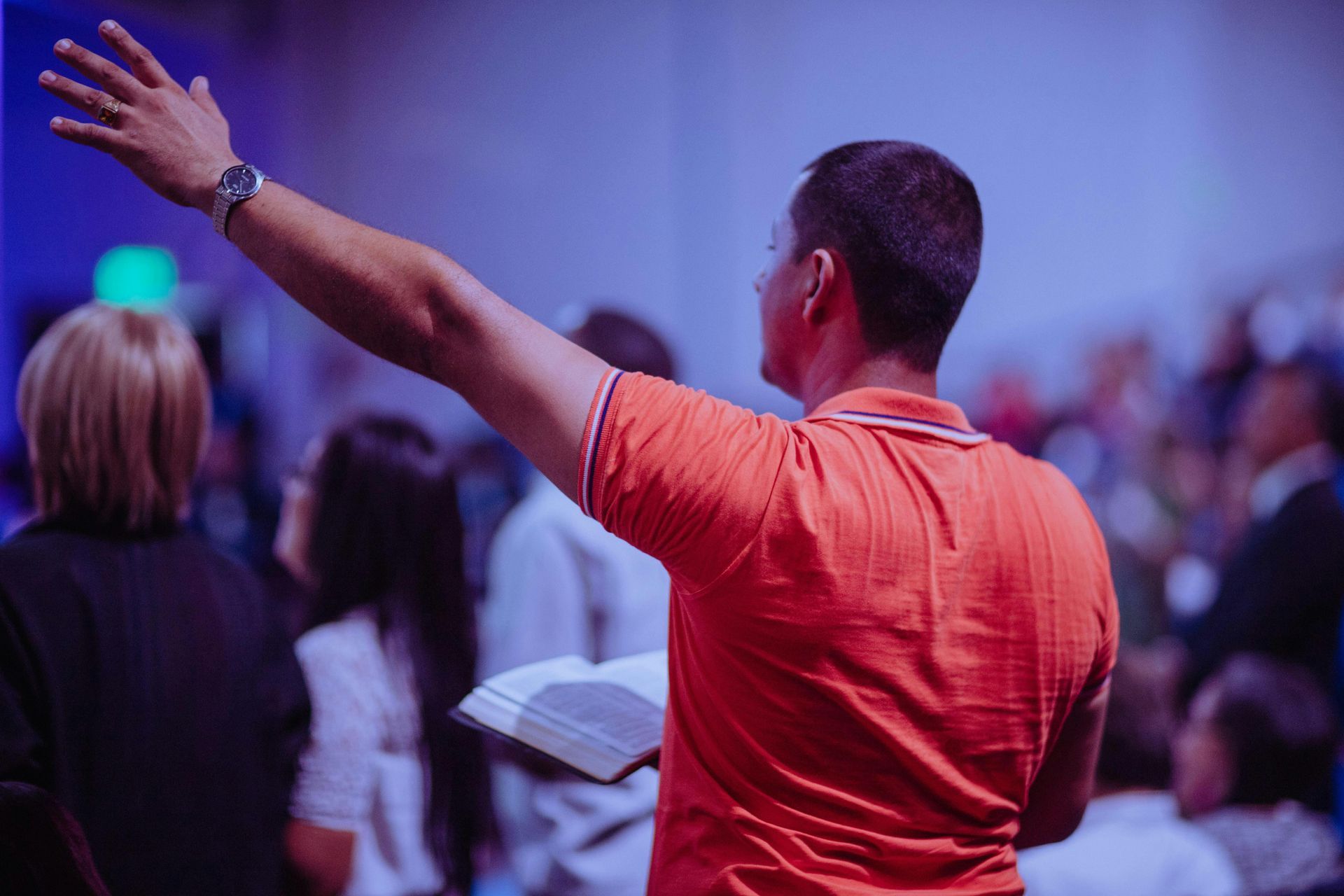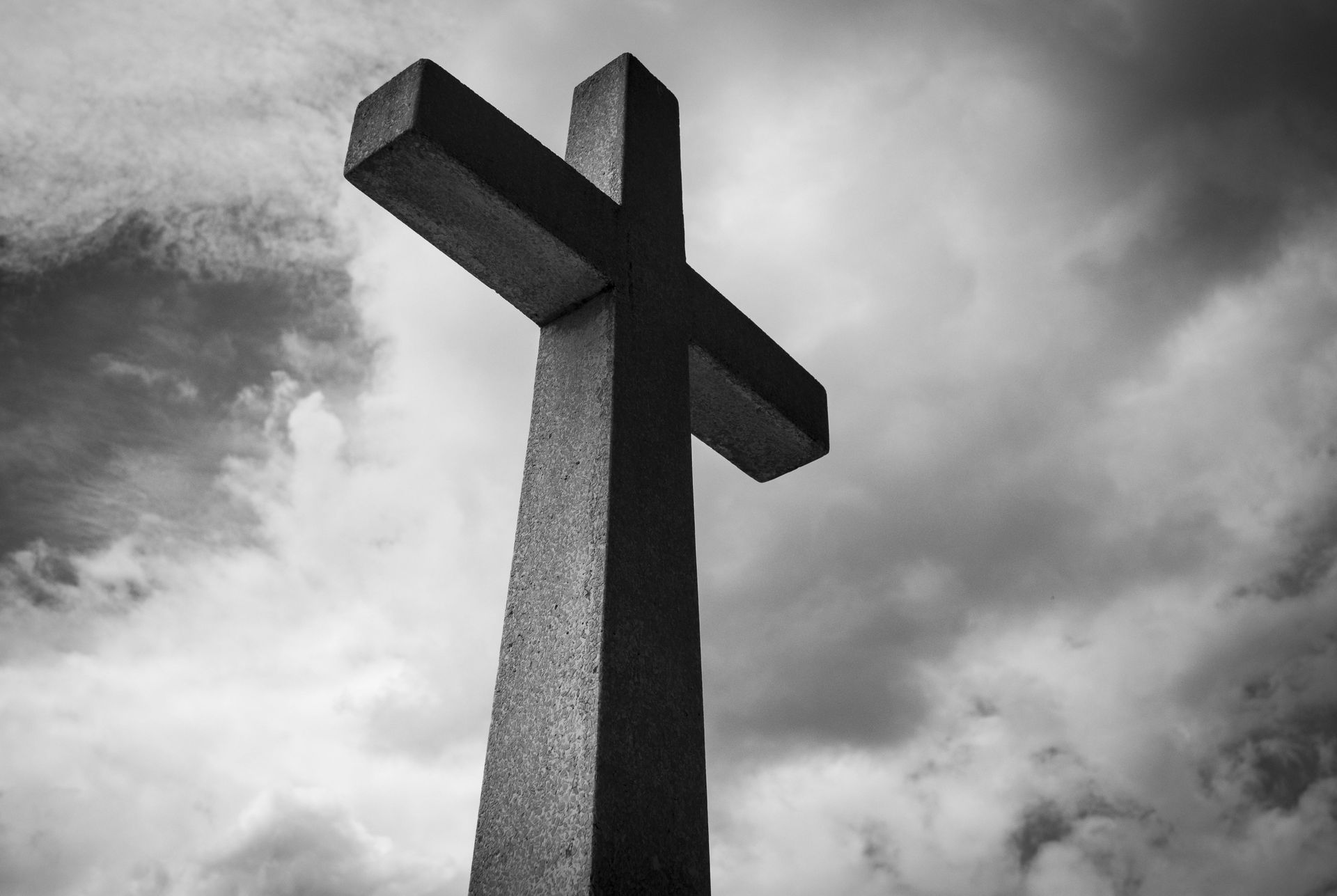The Covenanting Table
Good Monday morning friends. It’s raining outside which encourages me to pray
“Shower, O heavens, from above, and let the clouds rain down righteousness, let the earth open, that salvation and righteousness may bear fruit; let the earth cause them both to spout; I the LORD have created it.” (Isaiah 45:8).
So, my prayer today for myself, you, Heritage and the world is that God’s salvation will produce righteousness in me and us.
There are five Sundays in November and I’m going to divide Luke 22 into five sermons:
1 – The Plot and the Passover – 1-23
2 – The Test of True Greatness – 24-38
3 – The Agony in the Garden – 39-46
4 – The Kiss and the Sword – 47-53
5 – The Disciples’ Fall & the Son’s Faithfulness – 54-71
Those working titles tell us what is transpiring in each of those texts. I’m not sure they will remain the sermon titles.
This Sunday’s sermon title could be: The Covenanting Table.
An outline might look like this –
First: The Conspiracy Against Jesus. 1-6
Second: The Preparation for the Passover. 7-13
Third: The Institution of the Lord’s Supper. 14-23
Fourth: The Meaning of the Meal
Let’s take the first point and apply the Observation, Interpretation, Correlation and Application (OICA) model to it. Here’s what I see first thing this Monday morning.
Observation – What the text says
a) The Passover draws near, and the religious leaders seek a way to destroy Jesus. 1-2
b) Judas, one of the Twelve, consents to betray Him for money. 3-6
Interpretation – What the text means.
a) Luke frames this scene with the irony that the Feast of Deliverance (Passover) becomes the backdrop for the ultimate Deliverer’s betrayal. Wow. (That is so important). His non-deliverance ensures our deliverance. It reiterates the salvation through judgement motif that runs throughout the Bible.
b) Satan’s entering into Judas proves he is not a Christian. (You can spend time on demon possession in your CG, but I won’t delve into it too much in the sermon.
c) Even so, evil plots do not frustrate God’s plan. They fulfill it. I’ll say more about that in the Correlation portion of this point.
Correlation – Where else does the Bible say something like this?
a) This is the story of the Bible (How many times do we see this in the Bible? (That’s a great CG discussion). For instance, look at just four examples -
b) Satan’s ploy in the Garden of Eden set the stage for the New Jerusalem/Haven.
c) Joseph’s brothers once sold him into slavery, yet God turned it for salvation (Gen. 50:20).
d) Haman’s plot in the book of Esther functions as another vivid example of the same redemptive irony that Joseph’s story and Judas’s betrayal reveal: evil intends destruction, but God works through it to accomplish salvation. (I may mention Haman here because my hope is to move from Psalm 119 next year to the book of Esther. Mentioning Haman here may whet the congregation’s appetite for more. That story is less well-known than Joseph’s but again, it is the basic storyline of the Bible summed up in Romans 8:28).
e) The cross is the final instance of human treachery overruled by divine sovereignty.
Application — How do I move this from text to transformation? How might the Holy Spirit apply this truth to me?
Trust God’s purpose even when you see human schemes that defy God’s will for you and the world. He is never surprised. He is always in control. He is working all things together for his glory and your good (which are synonymous).
Well friends, that’s just the outline for point one, The Conspiracy Against Jesus in verses 1-6. You can see how I could really preach four sermons just on this single point alone, and you could lead four CG discussions to fully enjoy each section of vs 1-23 over five Sundays. Wow!
Often, the hardest part in preaching and teaching is not ‘what to say,’ but, ‘what not to say,’ because there is so much to say. The Bible is so rich and so deep. It makes me think of Paul’s comment,
“Of this gospel I was made a minister according to the gift of God's grace, which was given me by the working of his power. 8 To me, though I am the very least of all the saints, this grace was given, to preach to the Gentiles the unsearchable riches of Christ, 9 and to bring to light for everyone what is the plan of the mystery hidden for ages in God, who created all things…” (Ephesians 3:7-9).
Reading even a single verse in the Bible is like standing under Niagara Falls.
But my main point this Sunday will be to emphasize the covenanting table, so I will leave those extraneous discussions to you. PS – They are extraneous to my point Sunday. They are not extraneous to discussion in your CG.
Oh, by the way, I’ve divided Luke 22 into five sermons because I think I will preach a Christmas series this year for the four Sundays of December. I haven’t taken a break from preaching through a book over the Christmas season in many years and I think the congregation will enjoy it. I wish I could start the Sunday after Thanksgiving, on November 30th, but Luke presents chapter 22 in five sections, requiring 5 sermons.
Well, I had an early morning meeting away from the study this morning which has cut into my Monday morning Observation of our text. And, I’m using my Monday lunchtimes to listen to a Northside student read so, my Monday morning is a little shorter than normal. I have to stop now but will leave you with the Monday-Friday CG Leader Study Guide to help you think on the text each day this week while we pray Paul’s admonition to Timothy –
“Think over what I say, for the Lord will give you understanding in everything” (2 Timothy 2:7).
Remember, we’re using the TRAP model (Think Reflect, Apply Pray), which is just as different way of saying, OICA. My hope it will ‘trap’ the text in your mind and heart. (Yes, it may be corny but that’s because I created it).
Monday – The Shadow of Betrayal (v. 1–6)
Think: The Passover draws near, but instead of worshipping, the leaders plan murder. Judas agrees to betray Jesus for money. Evil is real, yet God’s plan is still unfolding.
Reflect: When have you seen God bring good out of human failure or injustice? How does that strengthen your faith when life feels unfair?
Apply: Choose to trust God’s providence in personal circumstances you do not understand. His purposes are never interrupted.
Pray: Lord, when darkness seems to win, remind me that You are never defeated. Give me confidence in Your sovereign grace.
Tuesday – The Preparation of the Passover (v. 7–13)
Think: Jesus gives Peter and John exact instructions, and they find everything “just as He had told them.” The one who will soon be crucified is completely in control.
Reflect: How does Jesus’ attention to detail encourage you to rest in His leadership over your life today?
Apply: Ask God to help you obey promptly and trust His direction in both small and large matters this week.
Pray: Sovereign Lord, thank You that You go before me in every detail. Teach me to follow Your word with quiet confidence.
Wednesday – The Covenant Meal (v. 14–20)
Think: Jesus transforms the Passover into the Lord’s Supper. The bread and cup now point to His body and blood, sealing a new covenant of forgiveness.
Reflect: What does it mean that Jesus “earnestly desired” to share this meal before He suffered? How does that reveal His love for you?
Apply: Last Sunday we enjoyed the Lord’s Table. Did you take time to confess sin? Perhaps you saw that ‘indulgence, addiction, anxiety’ pattern in your life? What have you decided to do about it?
Pray: Jesus, thank You for giving Yourself for me. Let the reminder of last Sunday’s bread and cup renew my daily love and gratitude for You while I seek to live for you.
Thursday – The Presence of Betrayal (v. 21–23)
Think: Even at the table of grace sits a betrayer. Judas proves that outward closeness to Jesus is not the same as inward devotion.
Reflect: In what subtle ways might we deny or betray Jesus, through compromise, silence, or divided loyalties? (Again, think about ‘indulgence, addiction, anxiety’ as a false god or idol.
Apply: Invite the Spirit to search your heart for any hypocrisy or hardness. Commit to wholehearted loyalty to Christ.
Pray: Search me, O God, and cleanse my heart. Keep me from the spirit of Judas and make me faithful to You.
Friday – The Meaning of the Meal (v. 14–23), Review & Application)
Think: The upper room shows a Savior who rules every moment. The meal proclaims His death, confirms His covenant, and anticipates His return.
Reflect: How does this text deepen your assurance that nothing can separate you from Christ’s love?
Apply: End the week with gratitude. Before Sunday worship, remember His body given and His blood poured out for you last Sunday as you prepare to gather again this Sunday.
Pray: Jesus, you are the true Passover Lamb. Thank You that Your blood covers me. Help me live each day in joyful remembrance until You come again.










